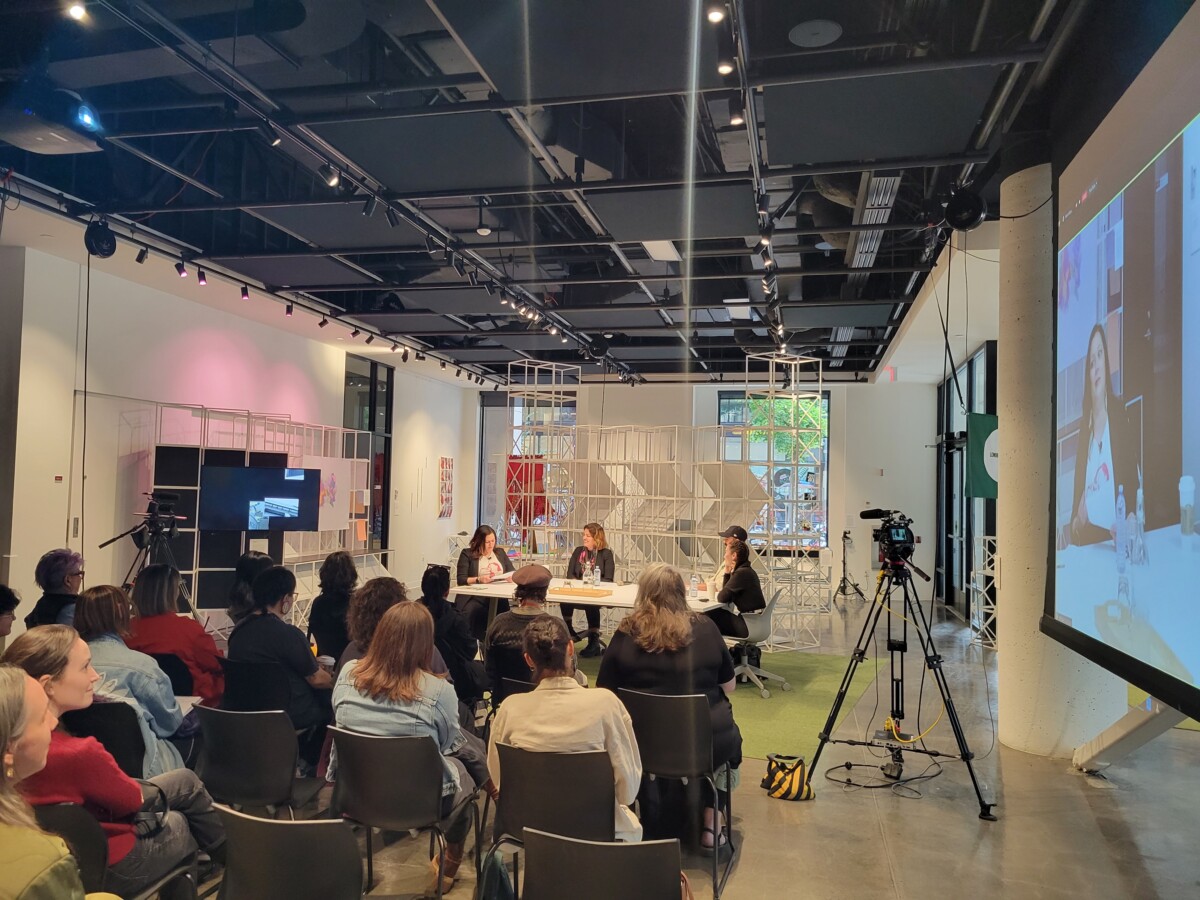The Indigenous Futures Resource Centre has created an online space to nuance the conversation on cultural appropriation.
In recent discussions surrounding reconciliation, inclusion itself has emerged as a contentious notion. The term inherently implies an imbalance of power between those at the centre who hold the authority to make decisions and those on the periphery who are left at their mercy. Inclusion can easily be mishandled—even organizations with the best of intentions can end up unwittingly tokenizing and exploiting their Indigenous employees. True reconciliation is the democratisation of decision-making, where inclusion efforts are no longer necessary, because everyone is already seated at the table.
In her article “Indigenous Fashion Week Toronto,” Indigenous artist and fashion designer Sage Paul discusses the urgency of addressing cultural appropriation in the fashion industry in all of its subtleties. It is increasingly important to have a discerning eye. As overt, public incidents become less common, the problem continues to fester behind the scenes. For example, Indigenous artists are being included in projects only to find that their presence is nothing more than the company’s effort to reach a diversity quota. Their names become stamps of authenticity on designs in which they were granted little, if any, creative control over.
Paul’s article can be found among a growing collection of Indigenous scholarship surrounding this issue on the Promoting and Protecting Indigenous Arts (PPIA) website, which was recently launched as an expansion of the original 2021 print publication. To celebrate the launch on Sept. 26, Concordia’s 4th Space held a panel discussion moderated by Dr. Heather Igloliorte, along with Paul, visual artist Nico Williams and fashion designer Julie Grenier as guests to discuss the impacts of cultural appropriation on Indigenous fashion. The panel noted the long history of Indigenous communities’ participation in the global fashion world as fur traders, and the importance of remembering this history. They also tackled some of the unseen issues facing Indigenous artists and designers, such as crossing the country borders without having their materials confiscated or their customers’ fear of openly wearing their designs. The panellists recalled instances where their non-indigenous customers would admit to only wearing their jewellery or clothing in private, worried that wearing the designs in public would attract negative attention.
The PPIA website is a living resource. It provides a space for new scholarship to be placed in dialogue with existing conversations to build a cohesive body of knowledge that is readily accessible to all. “This project unites the wisdom and experiences of Indigenous artists, scholars, cultural stakeholders and knowledge keepers who demonstrate a profound commitment to educating the public,” said Igloliorte. Visit the website at https://ppia-ppaa.ca/ to learn more.
The full panel discussion and Q&A session is also available to watch online on the 4th Space’s YouTube channel here.
